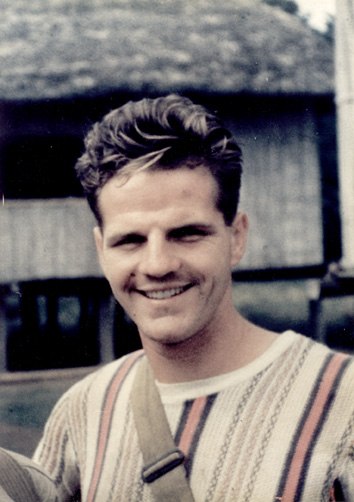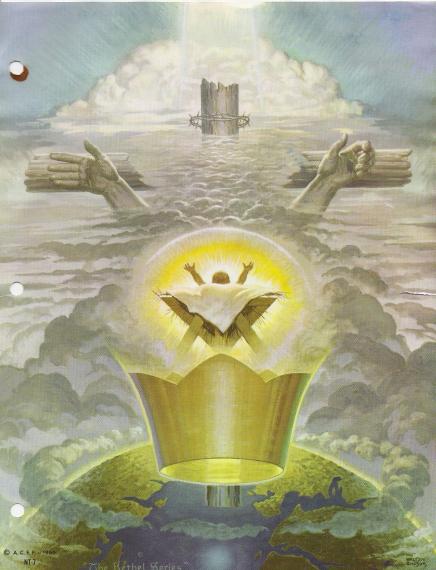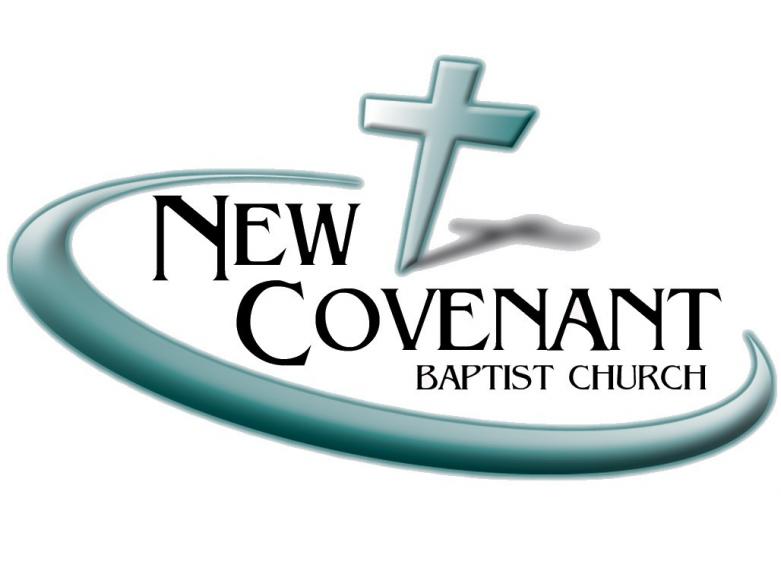
Jeffrey Collins shares the following story in the Christian Reader (Mar/Apr 1998):
It had been a trying week at our Love & Action office. At five o'clock on a Friday, I was looking forward to having a quiet dinner with friends. Then the phone rang.
"Jeff! It's Jimmy!" I heard a quivering voice say.
Jimmy, who suffered from several AIDS-related illnesses, was one of our regular clients. "I'm really sick, Jeff. I've got a fever. Please help me."
I was angry. After a sixty-hour work week, I didn't want to hear about Jimmy. But I promised to be right over. Still, during the drive over, I complained to God about the inconvenience.
The moment I walked in the door, I could smell the vomit. Jimmy was on the sofa, shivering and in distress. I wiped his forehead, then got a bucket of soapy water to clean up the mess. I managed to maintain a facade of concern, even though I was raging inside.
A friend, Russ, who also had AIDS, came down the stairs. The odor made Russ sick, too.
As I cleaned the carpet around Russ's chair, I was ready to explode inside. Then Russ startled me. "I understand! I understand!"
"What, Russ?" Jimmy asked weakly.
"I understand who Jesus is," Russ said through tears. "He's like Jeff!"
Weeping, I hugged Russ and prayed with him. That night Russ trusted Jesus Christ as his personal Savior--a God who had used me to show his love in spite of myself.
What does it look like to do Christian ministry? Jesus makes it simple.
A SIMPLE APPROACH TO MINISTRY—GO PREACH AND HEAL.
As Jesus sent out the Twelve on their first mission, He told them to concentrate on doing only two things. He told them to heal sick people and to preach the Good News. Jesus was simply telling them to do what they had seen Him doing. He had been going to where the people were and was touching them and teaching them. Here’s what Jesus had been doing:
Then Jesus went about all the cities and villages, teaching in their synagogues, preaching the gospel of the kingdom, and healing every sickness and every disease among the people. (Matthew 9:35).
Jesus went about preaching the good news of the kingdom and healing hurting people. Now Jesus wants His followers to do the same kind of ministry that He does. Go preach and heal. He sends them to help hurting people and to proclaim the good news.
That’s our ministry as well. We must go preach and heal. Jesus never set up a ministry campus and required all the people to come to where He was. Jesus did not have a “Field of Dreams” mentality: “Build it and they will come.” Some think that all we have to do is to build a church building and people will just flock in. But that is not Jesus’ method of ministry. He says go. His ministry was not building-focused, it was people-focused. He was constantly walking around the region going to where the people were.
The Father sent Jesus into this world and Jesus sends us out into the world. The night before Jesus was crucified, He prayed, “As You sent Me into the world, I also have sent them into the world.” (John 17:18).
The twofold task of a disciple is simple, preach and heal. Jesus didn’t give us four laws or twelve steps or eighteen tasks. He simply said, “GO to where the hurting people are and help them and tell them the good news of the Kingdom.” Our mission is to go where the people are, showing them the love of Jesus by what we do and what we say.
That’s not just the preacher’s job, or the deacons’ job or the church staff’s job. It is the JOB #1 for every disciple of Jesus.
How do you do ministry?
 Many of you recall the movie Chariots of Fire. It was about Scotsman Eric Liddell running in the 1924 Olympics in Paris. Liddell was a committed Christian and refused to run on Sunday (which he felt was the Christian Sabbath). The consequence was that he was forced to withdraw from the 100 meters race, his best event. Instead he entered the 400 meter race. The day of the race as Liddell went to the starting blocks, an American masseur slipped a piece of paper into Liddell's hand with a quotation from 1 Samuel 2:30, "Those who honor me I will honor." He not only won the race, but broke the existing world record with a time of 47.6 seconds.
Many of you recall the movie Chariots of Fire. It was about Scotsman Eric Liddell running in the 1924 Olympics in Paris. Liddell was a committed Christian and refused to run on Sunday (which he felt was the Christian Sabbath). The consequence was that he was forced to withdraw from the 100 meters race, his best event. Instead he entered the 400 meter race. The day of the race as Liddell went to the starting blocks, an American masseur slipped a piece of paper into Liddell's hand with a quotation from 1 Samuel 2:30, "Those who honor me I will honor." He not only won the race, but broke the existing world record with a time of 47.6 seconds.  Over the last few posts I have written about being a disciple as we focused on Jesus’ challenge to His disciples in
Over the last few posts I have written about being a disciple as we focused on Jesus’ challenge to His disciples in  Jim Elliot is one of my spiritual heroes. On January 8, 1956, he and three other men were attacked and killed by the Auca Indians in the jungles of Ecuador. Elliot and a few others went to take the gospel to these primitive people. The story about their deaths captivated the nation because of a story in Life Magazine. Jim’s wife, Elizabeth Elliot, wrote about the event in her book, Through Gates of Splendor. Although it was a tragedy, Jim was ready to die. In his journal, Jim Elliot wrote: “God, I pray Thee, light these idle sticks of my life that I may burn for Thee. Consume my life, my God for it is Thine. I seek not a long life but a full one like You, Lord Jesus.” … “He is no fool to give up that which he cannot keep in order to gain that which he can never lose.”
Jim Elliot is one of my spiritual heroes. On January 8, 1956, he and three other men were attacked and killed by the Auca Indians in the jungles of Ecuador. Elliot and a few others went to take the gospel to these primitive people. The story about their deaths captivated the nation because of a story in Life Magazine. Jim’s wife, Elizabeth Elliot, wrote about the event in her book, Through Gates of Splendor. Although it was a tragedy, Jim was ready to die. In his journal, Jim Elliot wrote: “God, I pray Thee, light these idle sticks of my life that I may burn for Thee. Consume my life, my God for it is Thine. I seek not a long life but a full one like You, Lord Jesus.” … “He is no fool to give up that which he cannot keep in order to gain that which he can never lose.”
 Yesterday in my post,
Yesterday in my post,  Twice a month after Sunday morning worship our church shares a fellowship meal together. Many of us bring food and we lay it all out on the table buffet style. Don’t you just love buffets? You can pick and choose between many scrumptious dishes. Some restaurants like the Golden Corral or Ryan’s have that kind of set up. If you go with a group of people everyone can get what they want. They can go down the line and pick and choose … Mexican food, Seafood, Chinese, Italian, good old American. You can try something new, and if you don’t like it … set it aside and go back for something else…
Twice a month after Sunday morning worship our church shares a fellowship meal together. Many of us bring food and we lay it all out on the table buffet style. Don’t you just love buffets? You can pick and choose between many scrumptious dishes. Some restaurants like the Golden Corral or Ryan’s have that kind of set up. If you go with a group of people everyone can get what they want. They can go down the line and pick and choose … Mexican food, Seafood, Chinese, Italian, good old American. You can try something new, and if you don’t like it … set it aside and go back for something else…
 “The trouble with many men is that they have got just enough religion to make them miserable. If there is not joy in religion, you have got a leak in your religion.”-- Billy Sunday.
“The trouble with many men is that they have got just enough religion to make them miserable. If there is not joy in religion, you have got a leak in your religion.”-- Billy Sunday. Thomas Edison once worked for months to find a filament that would burn for more than a few seconds for his incandescent light bulb. He tried over 700 filaments and each one was a failure. One reporter interviewed Edison and said, “It must be frustrating to work so hard and see no results.” Edison replied, “Oh, I have lots of results. I know 700 things that won’t work!”
Thomas Edison once worked for months to find a filament that would burn for more than a few seconds for his incandescent light bulb. He tried over 700 filaments and each one was a failure. One reporter interviewed Edison and said, “It must be frustrating to work so hard and see no results.” Edison replied, “Oh, I have lots of results. I know 700 things that won’t work!” Chuck Swindoll tells the story of a friend who, in mid-career, was called into the ministry. In fact, God ultimately led him overseas. At that point he found it necessary to move all his family and as many of their possessions as possible beyond these shores, all the way to the island of Okinawa. He said, "We put all of our possessions that were a part of our trip into our station wagon. We packed that car all the way to the top of the windows."
Chuck Swindoll tells the story of a friend who, in mid-career, was called into the ministry. In fact, God ultimately led him overseas. At that point he found it necessary to move all his family and as many of their possessions as possible beyond these shores, all the way to the island of Okinawa. He said, "We put all of our possessions that were a part of our trip into our station wagon. We packed that car all the way to the top of the windows." 

 I think that one of the greatest television shows ever produced was the Andy Griffith Show. One of my favorite episodes is called “
I think that one of the greatest television shows ever produced was the Andy Griffith Show. One of my favorite episodes is called “ Why Do Some People Not Believe?
Why Do Some People Not Believe?




